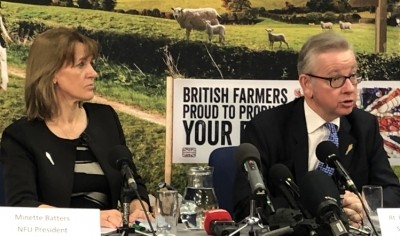Smaller firms ‘hit worst’ by no-deal Brexit

Speaking at the Oxford Farming Conference earlier this month, the head of the Department for Environment, Food and Rural Affairs pointed to the cost a no-deal Brexit would have on small to medium-sized (SME) food manufacturers – which make up more than 90% of the industry.
“A nation like ours can adapt and flourish over time, but the turbulence generated by our departure would be considerable,” he said.
Clear about the costs
“It would hit smaller food businesses worse. While predictions of what would happen without a deal have been dismissed as another episode of ‘project fear’, when we look at what a no-deal Brexit would involve, we do need to be clear about the costs.”
Gove warned that, on average, tariffs would rise by 11% across the board, while some sectors were facing much higher costs. He claimed that, in the meat sector, tariffs could increase by 40% at least.
He also set out his vision of a successful food strategy for the UK, promising a plan that looked to the future of production and integrated new technologies to promote genuine growth of the industry.
Strategy
“A proper food strategy must look at the socioeconomic factors related to diet and health problems, such as diet-related illnesses. The fact that these problems disproportionately affect more disadvantaged members of society should offend our sense of social justice,” he said.
“I want our food strategy to be ambitious, to ask big questions and to challenge lazy orthodoxies, to place food security on sounder footing, to enable food producers to plan for the future with confidence and provide a proper understanding of the real economic struggle of the food industry.”

















